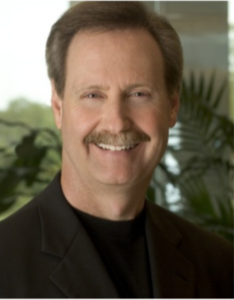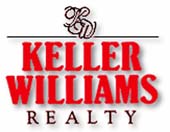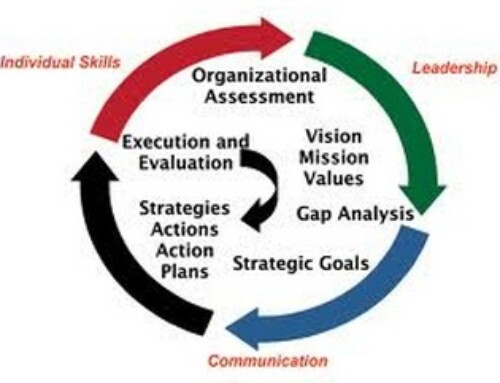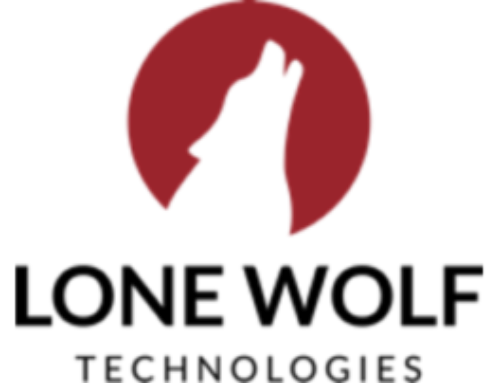This Flashback Features series unearths profiles from the past of real estate a nd technology leaders. A version of this story was first published in California Real Estate magazine. This profile of Gary Keller, founder of Keller Williams Realty International, is from 2004.
nd technology leaders. A version of this story was first published in California Real Estate magazine. This profile of Gary Keller, founder of Keller Williams Realty International, is from 2004.
His mother was a teacher, his father was a teacher, he had uncles and aunts who were teachers, and even his big sister is a teacher. So why didn’t Gary Keller, Cofounder and Chairman of one of the fastest growing brokerage firms in the US become a teacher?
“I did, didn’t I?” asks Keller rhetorically, explaining, “What I do is the private enterprise teaching versus the public kind.”
Keller as a teacher – or what today is termed a “professional coach” – is the hallmark of Keller Williams Realty International’s style as well as its success. Less than a decade old, Keller Williams 22,487 agents are based out of less than 300 offices that generated a remarkable $531 million in revenues in 2002.
Even more remarkable is the fact that since 1995, his firm’s sales and commissions growth has topped 700% with the average agent yearly growth rate almost 50%.
Most importantly, Keller credits his firm’s success to a model he believes will allow him to grow quickly to 500 offices – which are called “market centers” – staffed by 50,000 agents that he believes will create 5,000 new millionaires.
This will be accomplished in a way that will encourages Keller Williams team members to put God and family before business, according to the company.
Even the title to his new book alludes to his grand plan: “Millionaire Real Estate Agent: It’s Not About the Money,” that he co-wrote with Dave Jenks and Jay Papasan.
ENTREPRENEURIAL ROOTS
While money may never have been Keller’s primary motivation, it was always a vital end to a means at crucial points throughout his life.
“Being raised in an educational family also means there never was a lot of money,” Keller admits, but that fact became the catalyst to early ventures into capitalism. “I never worked for anyone that didn’t become a millionaire,” Keller observes, noting his boss for his first job reading water meters left the city utility to operate a underground utility construction firm.
“When the people that you call boss have always been people of tremendous success, you begin to think like them,” Keller said. “And they do think differently and behave differently than everyone else: it is why they are what they are professionally.”
In the 7th grade, Keller started a lawn mowing business with his best friend. In 9th grade, he had to choose between varsity high school football – nearly a religious passion in Texas – and taking over the entire business so he could earn enough money to buy musical instruments. Keller, who plays guitar and piano, chose music over muscle and used his small business earnings to purchase “an amp and a guitar that was like the one that Pete Townsend (of the Who) played.”
“I always thought I was going to be a musician,” Keller confesses, “I was a musician in high school and thought I was going to be musician professionally, but I got disillusioned with the whole thing.” Keller was turned off by the lifestyle of the people involved in the pop rock music scene in the late 1970s.
While Keller didn’t have a Plan B, his parents did. “They told me they had sent in my SAT scores and application to Baylor University and that I was accepted,” Keller said.
While Keller was having a great time and taking classes in the business school, he didn’t have a major until he was a Junior. It was the summer before his Junior year that his dad intervened again.
“My dad does a very wise thing by going around and lining up one day shadowing appointments for me with a banker, an attorney and a Realtor,” Keller recalls.
But what stood out in Keller’s mind was something his father once said. “He said that anyone he knew that had any money either made it in real estate or put it in real estate,” Keller said. He returned to Baylor joining a new major that was just being offered in real estate and insurance.
FAILING FORWARD
After graduation, Keller had planned to go to work in the insurance industry, attracted by the appeal of a residual business that was in a big industry. New York Life offered an assessment test of his skills and he failed. “They said go pick another career because I didn’t have the behavior of a sales person,” Keller said.
“Well, that’s true, because I had the behavioral style of a teacher. But what has happened in the sales industry in the last 20 years is that it has moved from selling the consumer to educating the consumer. We consult and help them make good decisions, but we don’t sell them and slam- dunk them anymore,” Keller said.
His behavioral style turned out to be the prototype for the future, he says, “But at the time (rejection of my style) made me so mad I went into real estate because the one thing that you never do to a person who has a desire to live a meaningful life is never tell them they can’t do something,” he said.
Keller began interviewing with real estate companies. “I picked the one that was the most dynamic,” he said. In 1978, Keller joined JB Goodwin Company. “The young man that owned it was in his 20s and that was really appealing to me,” Keller added.
Keller had instant affinity in his new career. He simply loved it and loved working with people. “I came in and immediately sold six houses in a city that I had never been in and I was off and running,” Keller said, adding, “but I was not a rocket, while I went straight up, I also went straight down. I didn’t have another closing for five more months.”
That’s one of the truths that Keller says he has learned in life: “You have to fail your way to success,” he said. Keller is keenly aware that people are also remembered for their successes, not their failures: Babe Ruth is known for his 714 home runs, not his record 1,330 strikeouts.
SHARING THE WEALTH
In 1983 when Gary Keller and partner Joe Williams founded their own brokerage firm, they entered the market in tumultuous times. The result was an eventual reinvention of their company that was based on neither the traditional brokerage model with a compensation split nor the 100% fee-for-desk model.
Instead, Keller explains says the Keller Williams model is best described by the work of Stephen Covey, author of “The Seven Habits of Highly Effective People.”
“Covey described three relationships: you are dependent, independent or interdependent,” Keller said. “You go from a child where you say, ‘I need you Dad’ – dependent stage — to a teenager where you say, ‘I don’t need anyone’ to coming full circle as an adult where you say ‘I don’t need you but life is better with you.”
Keller uses this analogy to describe the traditional broker firm as dependent, the 100% model as independent, and calls the Keller Williams model interdependent.
“It bothered that we only have two models: the dependent model, which is quasi-employment and a ‘Hey, we’re going to do everything for you’ to the other extreme, which is the 100% model: ‘We’re not going to do anything for you.’”
To Keller the 100% model is like a rebellious teenager, adding, “Dave Liniger (founder of RE/MAX) is the poster child for that: he stands up at the podium and says, ‘If I want something from you I’ll tell you,” Keller said.
“What Keller Williams did was just a natural revolution of the industry,” Keller maintains. “I saw things in both models that I liked.” What he discovered was that he was rewarding top performance based on income, not on profit.
After a revealing meeting with compensation experts, Keller realized he needed a model that would reward every participant based on the profitability of the firm. The profit sharing model Keller Williams would pioneer for the real estate industry would not only grow the long-term wealth of its participants – the firm already accumulated $31 million in profit sharing to date – but would create a new income stream beyond just a commission check.
The program is an open-end profit-share structure that allows any Keller Williams associate, affiliate broker or employee the opportunity to participate in the profits they help generate without assuming financial risks and more importantly, features an “associate vesting program” that continues profit income for life, even after an associate stops listing and selling real estate.
Keller believes there is a role for all three models in the industry, but thinks his will eventually dominate. “My dad used to say, that’s why you have Neapolitan ice cream – you have all three flavors in one box,” Keller said. Credit Keller for adding the strawberry for the real estate industry.
 CREATING A LEAN, PROFIT MACHINE
CREATING A LEAN, PROFIT MACHINE
Keller is quick to point out that most companies looking to copy the Keller Williams concept are at an immediate disadvantage for a few reasons.
First, because Keller Williams was a first-mover in profit sharing, they are likely to always remain the leader because of the base they have already established. The base in September 2003 was $31 million and it is growing at a rapid pace with $1.7 million contributed in the most recent month.
Second, Keller believes his competition is focusing on just one piece of the puzzle by looking solely at its profit sharing model.
“One of the things that I did with Keller Williams that most of my competitors don’t understand is I spent 10 years developing a lead generation machine that is only now coming into fruition,” Keller said.
Early on, Keller Williams divided the US and Canada into 30 regions. “I spent the 1990s developing that infrastructure,” Keller said, “and by 2001 I have all 30 awarded. They have development contracts that they have to meet, and we are equal partners in the royalty side of the business. So, if 30 regions go out and award two franchises each, guess what, we grow by 60, three, we grow to 90.”
This explains why Keller Williams growth has been so explosive. Keller insists that their growth in highly managed.
“We don’t sell franchise like rabbits,” Keller said. He points to the success the company has had in its own hometown of Austin. Keller Williams has a 38 percent market share with just four offices in Austin. The number two firm in town, RE/MAX, has 24 offices and less than a 20 percent market share. “We only need 500 offices in the U.S.,” Keller ads.
“In fact, Keller Williams is a limited time opportunity,” Keller said. “That opportunity will come, and it will go.”
Finally, Keller Williams believes they can keep the competition at bay because they uniquely focused on helping their agents build wealth as well as a role in the company’s direction. The firm itself has no debt and they promote the idea of individual agents as a brand, who become active participants in the management of the firm through regional councils.
“What you want to do is help agents create multiple streams of cash flow,” Keller said. “You could own a regional business, until those are all gone, then you could own a franchise, until those are all gone, you can profit share, and you can also own a residential real estate agent business – it is a business – one that is trademarked, copyrighted, documented and it’s yours and it makes you a lot of money.”
“Remember,” Keller concludes, “the top real estate agent businesses make as much money as the top real estate offices. Williams is a reputation brand, but there is only one brand that the customer cares about and that’s the agent’s brand. The only thing a consumer cares about the company is if there is a problem, that there is a responsible business partner that they can turn to.”





Fascinatingly hardworking life achieved.